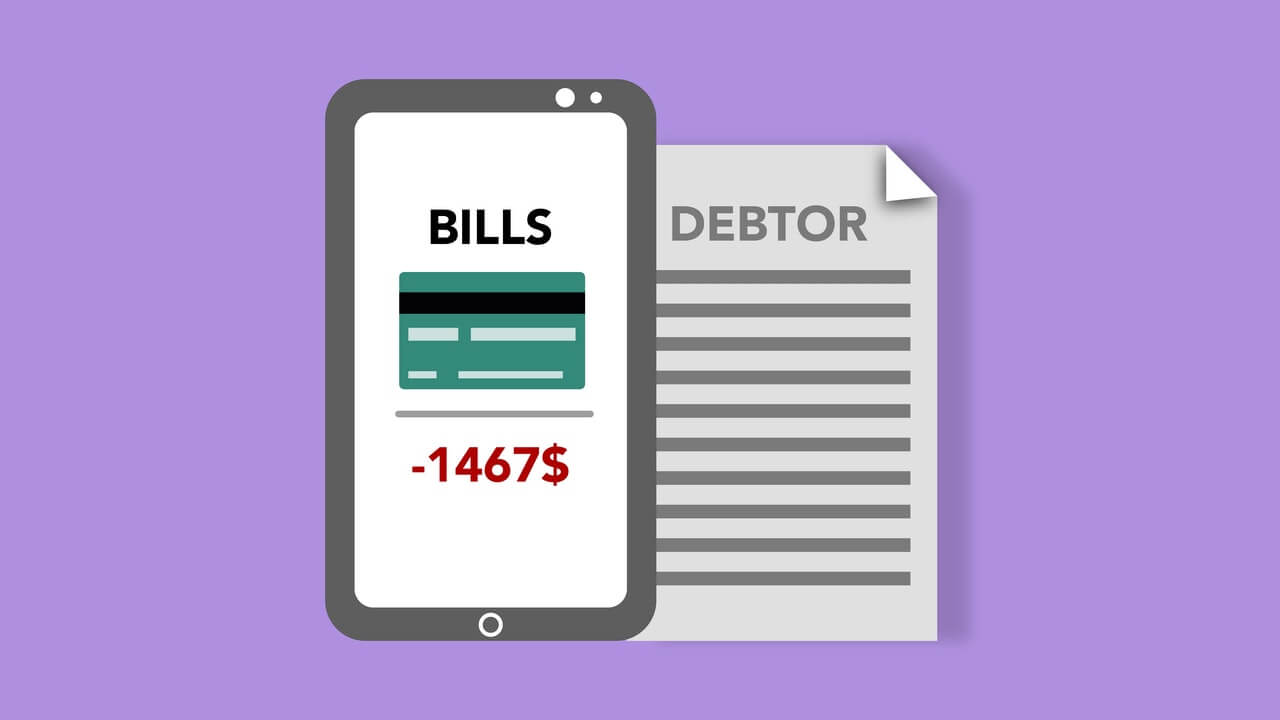A debtor is a person who owes money to a financial institution or entity. When borrowers take out loans or credit lines, they in turn, become debtors. If a debtor borrows too much money from a creditor and can’t pay back what they owe, there’s a chance they may fall into bankruptcy.
To avoid this, a person should always look for a lending company or Creditor that offers manageable interest rates, reasonable terms, and services that fit with their budget and lifestyle.
To help ensure that debtors are able to pay off their financial commitments, lending companies for unsecured loans usually only approve people who meet a specific set of requirements. For example, creditors look closely at credit scores and other related factors. A company offering secured loans, on the other hand, usually has much looser approval requirements.
Why Would a Debtor Owe Money?
There are many reasons why people may need to take out loans and therefore owe money to a bank or creditor. Depending on your income, you may be a debtor for one or more of the following reasons:
Rent or Mortgage Payments
Whether you’re making payments on rent or a Mortgage, housing payments are definitely bills debtors want paid consistently and on time. Suppose you’re having trouble keeping up with your mortgage payments. Or maybe you lost your job and can’t pay bills like rent. In that case, there are services available where a person comes to your home and appraises its value for a home loan refinance.
Credit Card Debt
Generally speaking, most people have dealt with some form of credit card debt at some point. Extended credit lines can be a convenient way to cover costs for any debtor. But, if you are spending your limit and only making the minimum payment every month, credit card debt can accumulate quickly. Always make sure to pay off your credit card in full to protect your credit score.
Legal Fees
Ticket fines, court fees, and legal bills are common items debtors owe money on. While legal fees are common, they are not something you want to ignore. Failure to make payments to your lawyer or a government body like the IRS can result in hefty fines, or even a warrant out for your arrest.
Medical Bills
When medical emergencies happen, not everybody has the cash to pay for everything up front. X-rays, copays, and other medical services can quickly get into the thousands of dollars, especially if you don’t have insurance. However, at least your medical bills won’t increase over time because medical creditors don’t charge interest on any funds owed. That being said, hospital bills can affect your credit if left unpaid.
Business Costs
If you own a business, you know just how fast trade creditors can add up. The recurring costs of running a successful business can be quite steep. For example, businesses need to consistently pay salaries for all their employees and maintain their buildings if they are brick-and-mortar. There are also pop-up costs like renewing a registered trademark that businesses are responsible for.
Will Debt Affect Credit When a Debtor Owes Money?
While successfully taking care of debts can boost your credit score, having too much debt can also negatively affect it. This is why it’s so important to be responsible and focus on repayment whenever you borrow money from any entity.
Being a debtor means you have established financial history, and successfully paying off creditors has the ability to reflect positively on your credit. If a debtor owes too many forms of debt and doesn’t have a high enough income, their credit may start to take a hit. How much money a person owes compared to their income is referred to as an income-to-debt ratio.
Because creditors and other financial companies look at a potential customers’ credit when determining funding approval, being a responsible Debtor and paying off owed money should be a priority. The less money a debtor owes, the more likely a financial entity will offer its services.
I Borrowed Money I Can’t Afford to Pay Back, What Should I Do?
If you’ve bit off more than you can chew when it comes to your loan, you might be a little worried right now.
As a borrower, it’s stressful feeling like you’re stuck in a loan that doesn’t work for your financial situation or with a creditor who doesn’t have your best interest in mind. Instead of stressing about making your next payment or potential bankruptcy, you may want to consider refinancing.
By refinancing, you could get a new lender for funding with improved interest rates, flexible payback terms, or whatever you need to make your loan more manageable. A bank or loan company will usually be willing to work with debtors looking to refinance. Refinancing for a debtor wanting to improve their current situation means they won’t be getting a brand new loan and giving their money to another lender.
Being a debtor can affect your life in a few different ways. But when you have a plan to pay back your creditor, any debtor can knock out their debt and improve their financial situation. If you’re having trouble paying off a credit card, mortgage, or bad credit personal loan, check out the rest of the CreditNinja Dojo for tips!
Matt Mayerle is a Chicago-based Content Manager and writer focused on personal finance topics like budgeting, credit, and the subprime loan industry. Matt has a degree in Public Relations and has been researching and writing about financial literacy and personal finance since 2015, and writing professionally since 2011.





